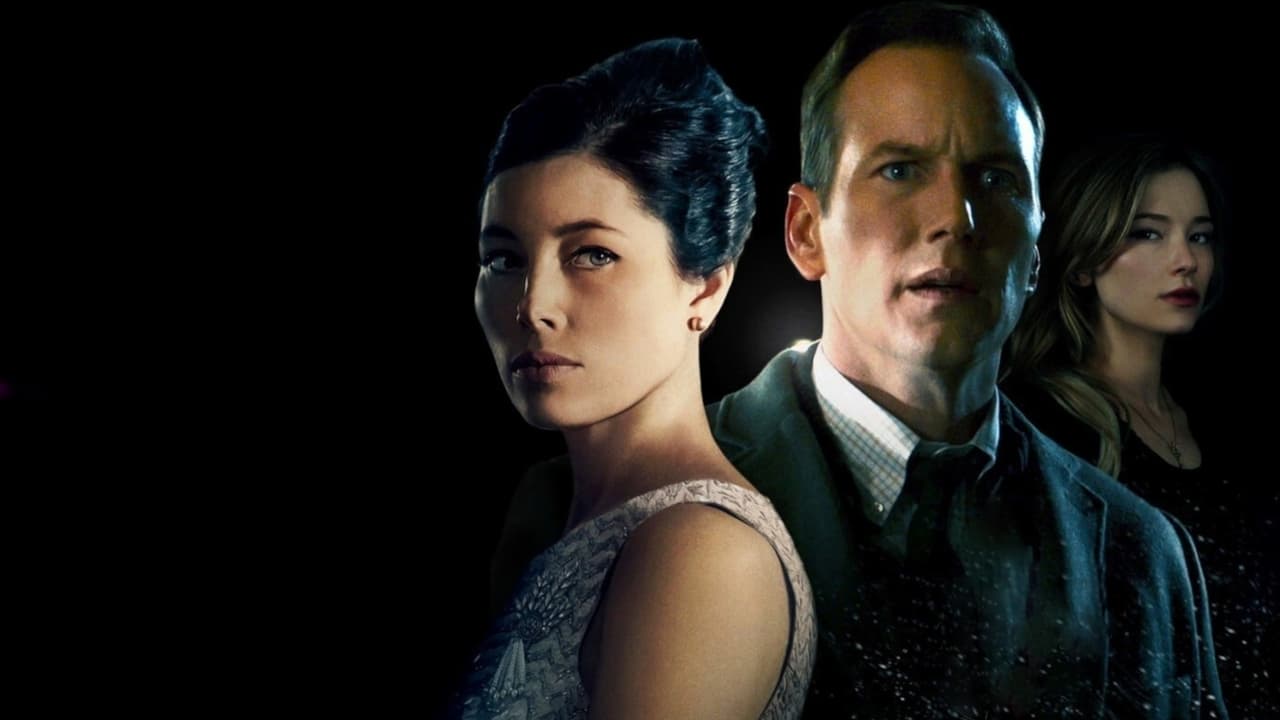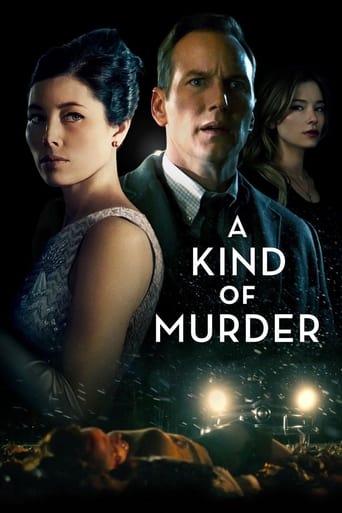

Brilliant and touching
... View MoreThe thing I enjoyed most about the film is the fact that it doesn't shy away from being a super-sized-cliche;
... View MoreGreat example of an old-fashioned, pure-at-heart escapist event movie that doesn't pretend to be anything that it's not and has boat loads of fun being its own ludicrous self.
... View MoreIt is encouraging that the film ends so strongly.Otherwise, it wouldn't have been a particularly memorable film
... View MoreWhat happened to Kimmel's eye? Seriously. Towards the end of the movie, in one seen his eyes are fine, the next scene, he has a shiner. What happened?Tony. He hears, and can pretty much ascertain, Kimmel being assaulted by that annoying investigator, yet the next scene, Tony has turned his back on Kimmel, who was in fact, the victim. Why? That made no sense, at all, whatsoever.There is a chunk missing in this movie, and sadly, that is to its detriment.This investigator. He had nothing this entire movie. He just speculated, harassed, invaded and kept losing his temper all movie long. All he had was these 2 idiots - Kimmel and Stackhouse. Those two are such fools, that an investigator wasn't even necessary for them to get caught.Speaking of getting caught; uhm, so, Mrs Stackhouse? Given the title of the movie, Walter's flashback, and Clara's demeanour, I'll have to ASSUME, that she committed suicide. Although, there is another angle they could've taken, especially given their emphasis on what Walter said to Ellie... An infuriating angle if done wrong, because it almost makes watching the entire movie USELESS, but at least would explain why Walter is an Architect rather. And I thought "Cell" had an inept ending.Then, there's the fact that, literally from the very begi... You know, let me not ruin for others, what really can't be ruined anyway. 3.4/10.
... View MoreIt could have been a really great movie but it just lets you down over and over again. I get the whole 60's era, rainy/snowy nights but it's all about the scenery and nothing about the characters. I never understood the bullying behavior of the Detective, the "illness" of the wife or what exactly the Husband did. Was he a Writer or an Architect? Too many unanswered questions and not enough acting, but you get plenty of night-time scenery. I guess my biggest disappointment is the Damn plot or story line, I'm still confused.
... View MoreNo Spoilers It was interesting and got you involved,BUT, the last 10 minutes which is the ending was just so pathetic,so stupid and did not even make sense. I wasted all that time getting intrigued with it to have a silly ending. The acting was very good and the atmosphere was also good. The automobiles were classics.
... View MoreAndy Goddard's A Kind of Murder aspires to be a feminist detective thriller (adapted by screenwriter Susan Boyd from Patricia Highsmith's 1954 novel The Blunderer). But the film, set in 1960s New York, seems far more interested in its art design then in fully developing the story's underlying sexual ethics. Even the casting suggests that its producers hope to benefit from the nostalgia generated for that time and place by Mad Men: One of that show's principal actors, Vincent Kartheiser, plays the film's sleuth, Detective Lawrence Corby, who tries to unravel the mystery surrounding two women found dead at the same suburban bus station several weeks apart.The film opens with the first murder, that of the wife of an unprepossessing bookstore owner, Mr. Kimmel (Eddie Marsan), whom Corby suspects of committing the crime. The murder also captures the attention of Walter Stackhouse (Patrick Wilson), a successful architect and amateur writer of detective mysteries. Stackhouse does some investigation of Kimmel on his own, and in the process implicates himself in the second murder. Stackhouse works in the city and lives in the suburbs with his paranoid and depressive wife, Clara (Jessica Biel). Sexually frustrated as a result of her various neuroses, Stackhouse meets a seductive young jazz singer, Ellie (Haley Bennett), thus setting into motion the film's nourish romantic subplot.As I've mentioned beforehand, the film doesn't fully develop the story and it's underlying sexual ethics, rather it seems more interested in its art design.The central murder mystery is handled without much aplomb or ingenuity. Corby is a clumsy dick, and his investigation plays out like a humourless parody of a detective film. Albeit exquisitely packaged, A Kind of Murder is mostly a paint-by-numbers genre piece that only flares into life when exploring issues of sin, guilt, and punishment in relation to masculine sexual urges. As in many film Noirs, murder here is explicitly linked to thwarted lust. The film takes the standard Christian condemnation of adultery that leads fornicators to the jailhouse or the grave in most Noirs and endows it with a feminist twist. The biblical exhortation against lusting after another woman becomes here a critique of male sexual license in America on the eve of the sexual revolution.This appropriation of Christian morality for feminist ends is illustrated by Stackhouse's relationship with Ellie. She's the Eve to his Adam, tempting him away from his well-lighted, idyllic suburban home to a dimly lit underground jazz club in Greenwich Village. But the film emphasises her neutrality in this process, pointing out that it's Stackhouse's prerogative that sets the affair in motion. While Ellie is a willing participant in the drama, she's far from the sexually assertive she-devil that Clara makes her out to be. This emphasis on Stackhouse's culpability and refusal to judge Ellie captures America's evolving morality during that period, when Eisenhower-era family values were giving way to a greater emphasis on sexual liberation and gender equality.The film's muted cinematography coincides with the ethical murkiness of Stackhouse's behaviour as he journeys from the paradise of sacred matrimony to the hell of infidelity. His symbolic castration by Clara causes him to stray in his heart before he does so with his body, and the film's denouement reveals this to be a tale of feminist revenge from beyond the grave masquerading as a Christian parable about the dangers of carnal desire outside of marriage. As Stackhouse sits in his firm's office beneath an abstract expressionist painting, perplexedly trying to rationalise his immoral behaviour to his business partner, the art's wild, swirling colours hint at the moral revolution soon to be unleashed upon the nation and the confusion it would sow in its wake.
... View More